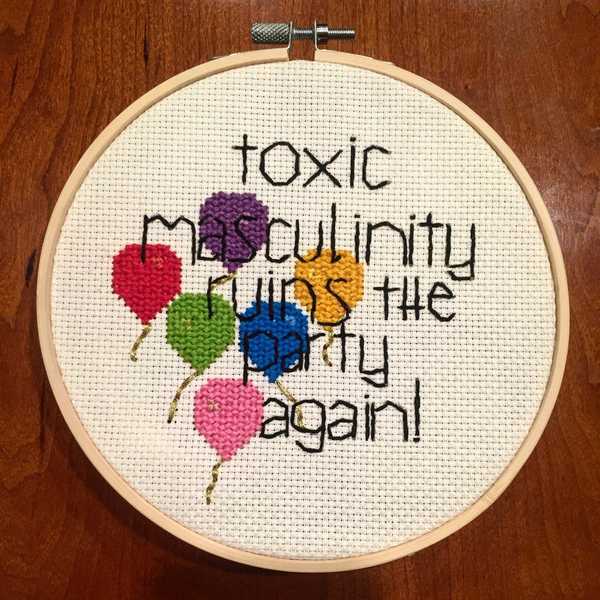As a tennis player myself, I believe that I'm right (and that every tennis player can relate to this) when I say that while tennis demands a great deal of sacrifice throughout the many years one is part of this sport's competitive world. It rewards players with valuable life lessons we are often unaware of. Here are the ways in which I have realized that, besides keeping us fit and entertained (and yes, at the same time it drains us from energy and keeps us from going out with our friends), tennis boosts personal growth and teaches us many things that will remain useful during our whole life.
1. Discover your own strengths and weaknesses.
Whether you have no patience at all, you break under pressure or you have the worst temper on this side of the globe, tennis evidences your flaws and strengths all the same, like it or not. Inside the tennis court, everything is thrown on the table for you to see and analyze. Good news is that thanks to this, you will be able to boost the good aspects of your personality, and work on what is not so good about yourself in order to improve and grow.
2. You are your worst enemy.
One of the best life lessons tennis will ever teach you. Yes, you're playing against an opponent on the other side of the net who can't wait to beat your butt. However, we tend to focus on the person in front of us more than we do on ourselves, and we are often the ones keeping ourselves from succeeding, not them. In tennis, as in life, we usually pull ourselves down and tell ourselves we can't do something. Remember that everything depends on how you face what comes up and the situation you are in. You are your worst enemy, but also your best ally. It's up to you to decide whom to be.
3. Never give up.
It might sound like a cliché, but it really is an incredibly useful lesson. In tennis, one learns soon that until a match is over, anything can happen. It might be match point, but never give up, always keep fighting. You never know when a adverse situation can turn into an optimistic and promising one.
4. How to work under pressure.
Inside the tennis court, it all comes down to you. One of the hardest things about tennis is that it's a single person sport, and as such, you make your own decisions, and your failure or success is yours and only yours. The constant pressure on the player is huge, so it's vital that he or she learns to cope with it. However, once you learn to handle pressure, you can apply it to every aspect of your life. Taking exams and dealing with deadlines becomes much easier, believe me.
5. No friends inside the tennis court.
I've spent my whole life trying to convince myself otherwise, but I have finally understood that this is true. It doesn't matter if you are playing against your best friend or your worst enemy, because once the game starts, he or she is just an opponent whose goal is to beat you, and you must do the same. We often make the mistake of mixing things up, and this might keep us from giving it all in the court (which isn't incompatible with being polite and sportsmanlike). This is the same in real life. Sometimes, if you must accomplish a goal, you must focus on you and let feelings out of the mess.
6. It exposes one's true personality.
This one is in line with my first point. After many years of competition, I've come to realize that what I see regarding my opponent during a tennis match is pretty much what I'm likely to see outside as well. Tennis puts people's real selves on the table, their personalities' positive and negative aspects with no external restrictions. That is, usually, a person's behavior while playing tennis matches that person's real personality outside the court. You might not want to befriend somebody who cheats really badly or acts really impolitely towards you during a match, because that's exactly how they might act in real life. Piece of advice.
7. Discipline, self control and hard work are key.
Among the many perks of being a tennis player is the fact that you learn quickly that without disciple and hard work, you get nowhere. Anything that is worth something in life requires effort. Being a tennis player requires exhaustive and nerve-wrecking training and work outs at any time of the day or the year, and being ready to face challenging conditions such as extreme cold or heat or an injury. It means not being able to be a kid like the others, because being a competitive tennis player means to miss things other kids are able to do (like hanging out in the evenings or in the weekends), because you have practice or an away tournament. It also means to be so sore and tired you can't walk the next morning, and to learn to study and do homework whenever you have a little spare time instead of doing something else you might want to do. But most important of all, playing tennis makes you reach an admirable self discipline and self control very early in life that consequently enables you to do all these things and much more without falling apart.
8. The mind is everything.
Every sport has four main areas: technical, tactical, physical and mental area. In the case of tennis, the mental part is often the deciding factor in a tennis match. For the mind to be in the right shape is incredibly important for tennis players in order to be successful in their craft. Often, it's not the player with the best technique or physical power who wins, but the player who's mentally the fittest. Concentration, will power and the ability to stay calm, focused and mentally tough throughout the different challenges and critical situations that come up during a match determine whether you end up being the winner or the loser. Life follows the same pattern, and a tennis player will learn this and be able to apply it outside the court too.
9. We all have second, even third opportunities.
Every tennis player knows that most of the time, things don't work out as we want them to, but that that doesn't mean we should give up or stop trying. Why would we have a second and third sets for, otherwise? While it's true hard work pays off and that you can achieve anything you put your mind into, you might not always get the reward you expect or deserve. Should that discourage you? Never. That gets us to my last point.
10. Learn to lose.
Let's face it; nobody likes to lose, but everybody knows that without failure there's no progress. Losing is as important as winning, because without failure we wouldn't be able to enjoy the taste of success. Tennis players know this better than anybody else. In tennis, forcibly one player must win, and other player must lose. While winning is sweet, losing provides you with more knowledge and experience than you might realize. We learn from our mistakes and failures, and we get better and better. And when you do win, you know it's because you fell and got up again.































